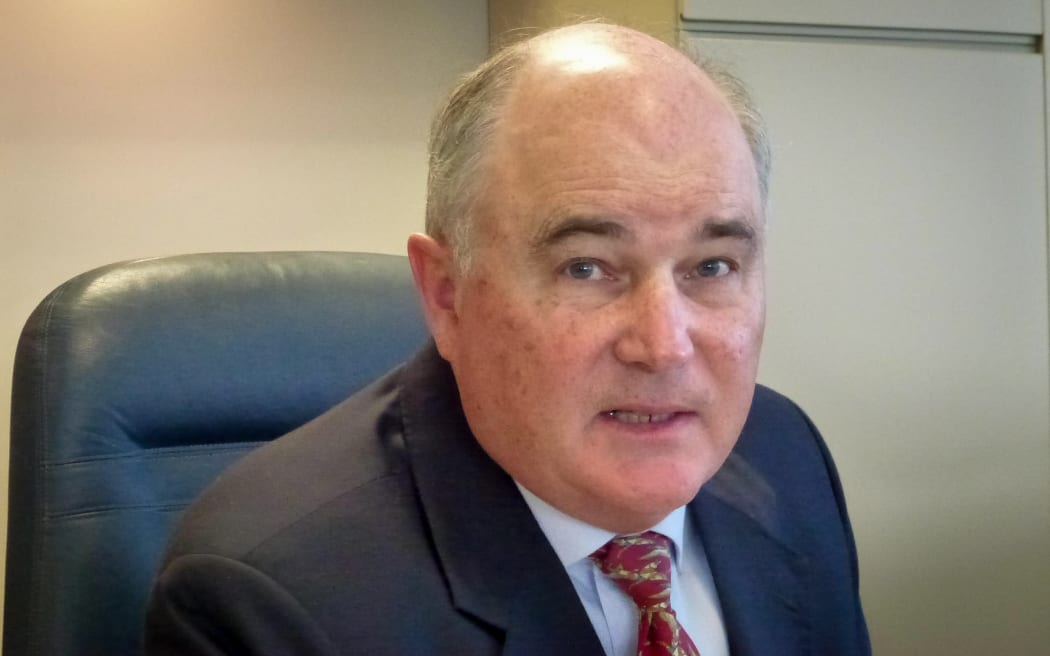Businesses and manufacturers have cautioned the country against talking itself into recession, following figures showing business confidence is at its lowest level in three years.
The figures, released by the New Zealand Institute of Economic Research (NZIER) showed just one in 10 businesses expected a lift in business over the next three months.

Kim Campbell said the country needs to make sure it did not get itself "into a fug as we so often seem to in New Zealand". Photo: RNZ / Todd Niall
It follows a call by economists at the country's largest bank, the ANZ, for the Government to spend more money, or face the risk of recession.
Business New Zealand's chief executive Phil O'Reilly said given the recent events on the world stage and falling dairy prices, it was not surprising business confidence had taken a hit.
However, he said, this had been offset by the Christchurch rebuild, growth in the manufacturing sector and a falling New Zealand dollar.
He said any talk of a recession was overblown.
"I definitely think there's a risk of politicizing what's going on too much," he said.
"We're an easy place to do business, we've still got net migration levels very, very high, [and] we've got very big engagement with workers in the labour market."
He said the country needed to make sure it did not get itself "into a fug as we so often seem to in New Zealand".
Kim Campbell from the Employers and Manufactures Association said while the drop in dairy prices had dominated the headlines in the past 12 months, other areas such as kiwifruit, wine and the service industry were growing.
The country could talk itself into recession, he said, but the economic fundamentals remained strong.
Mr Campbell said while the world was awash with money - with an estimated $2 trillion in un-invested corporate profits - there was a reluctance to invest because of lack of confidence.
"Here in New Zealand, where there still is a shortage of capital, it's a good sign because people have got the demand for it, which means we've got ideas."
He said tourism numbers were "absolutely going off the scale" and he saw plenty of opportunities for the nation's economy.
Dairy products, which account for up to 30 percent of the country's exports, have fallen in the past year, but the impact of this has been partly offset by a falling New Zealand dollar.
National Chair of Federated Farmers' Dairy Section Andrew Hoggard said the drop in international prices had left farmers pessimistic, particularly in the short-term.
With world dairy prices at a six-year low, he said it was bound to have an impact on how much farmers had to spend.
But he said a lot of suppliers had also had to reduce their costs to meet demand.
The NZIER said the affect of these lower dairy prices was evident, with businesses in dairy-intensive regions like Southland, Waikato and Canterbury expecting worsening conditions ahead.


